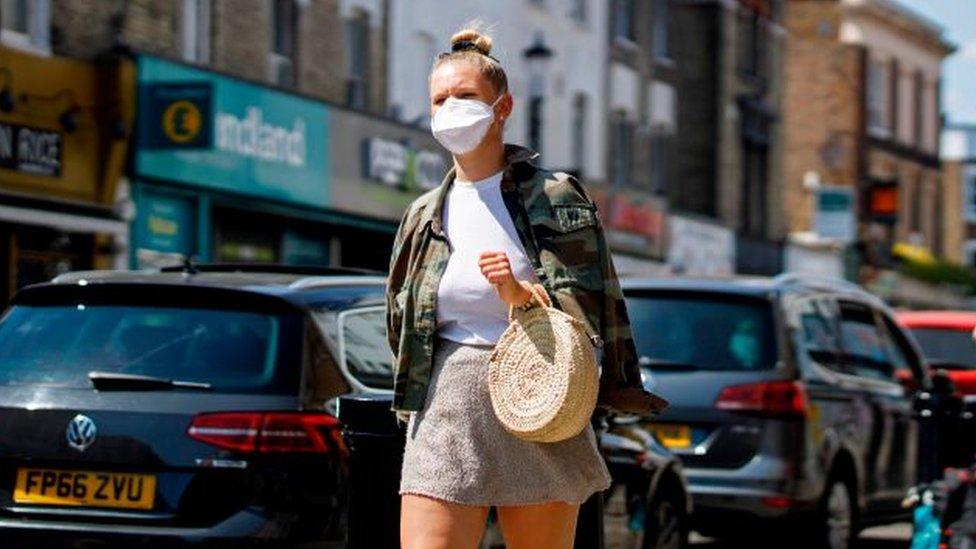Coronavirus: 'I was frozen out of furlough scheme'
- Published
Julie changed jobs before lockdown - then became unemployed and ineligible for the furlough scheme
The number of people claiming unemployment benefits has surged across the country since the start of the coronavirus pandemic. But often it's the most deprived areas that have been hit the hardest.
It's the news Julie has waited 140 days to hear. She's been offered a 16-hour-a-week office job and it's taken away her sleepless nights and worry of debt.
Eyes sparkling, she's overwhelmed with excitement.
"They said I could think about it. I thought about it for all of 10 seconds and then the answer was yes, straight away!"
Julie had applied for over 30 jobs since March and was getting increasingly desperate. She wasn't being offered any interviews and was terrified as the debts started to mount.
"I had no income. I maxed my credit card, and both my and my husband's overdrafts up to the top. I got to the point… I just got so down, I broke. I broke completely."
'Devastated'
Having worked and paid taxes for almost 40 years, Julie had quit her office job in the middle of March to take up with a new employer a few days later. In doing so, she fell victim to a loophole in the government's hastily devised furlough scheme, which meant she couldn't receive the 80% salary support many others benefited from.
"I was absolutely devastated, I went from up here [she points to the ceiling] thinking 'Wow the government's going to help us', to here [she points to the floor]. My crime was to move one job to another over a weekend."
Eventually, Julie found she was eligible for Jobseekers' Allowance of £74 a week. But money was tight. She and her husband were living on his wage and deferring the council tax and utility bills.

SOCIAL DISTANCING: What are the rules now?
TESTING: Who can get a test and how?
LOOK-UP TOOL: How many cases in your area?
VACCINE: How close are we to finding one?

Even before Covid, unemployment was high in the area where Julie lives - Trimdon in Country Durham. The north-east of England has the highest level of unemployment in the UK, at 5.4%. Trimdon itself is among the 20% of poorest neighbourhoods in the country.
Jobs were already thin on the ground. But new analysis shows the coronavirus crisis has hit areas such as Trimdon particularly hard. The 32 local authorities with the highest levels of child poverty - widely seen as a reliable measure of general deprivation - suffered some of the biggest rises in unemployment post coronavirus, according to research which the Joseph Rowntree Foundation (JRF) has shared with the BBC.
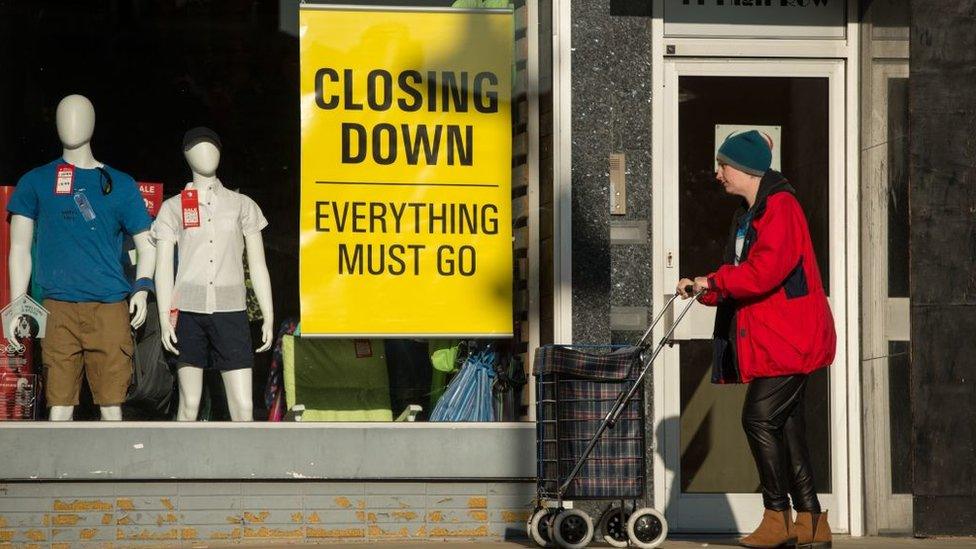
The north-east of England had already been hit hard by high levels of unemployment before the coronavirus pandemic
Julie became desperate. Her family encouraged her to seek help and she was prescribed anti-depressants. Then Julie realised she wasn't alone in being frozen out of the Covid support system. She began campaigning for herself and others in her position, joining Excluded UK - a volunteer organisation which says three million people have been excluded from meaningful support.
Julie feels a sense of unfairness - which she wants to raise with Chancellor Rishi Sunak. After all, the Conservatives won last year's election on the promise that they would return wealth to areas like those where Julie lives.
"[I feel] discriminated against and not treated equal - that's how I feel and I feel angry because of that. It's wrong, he can put it right, he can still fix it."
Trimdon is in Sedgefield, one of the so-called red wall seats targeted, and won, by the Tories in December. The constituency came to prominence as former Prime Minister Tony Blair's seat and had been rock solid Labour, until last year.
Dave Innes, at the JRF, sympathises with Julie's anger.
"The government has restated its commitment to the levelling-up agenda. It now has the chance to provide the skills and opportunities each part of our country needs to thrive, if it targets investment where it is needed most," he said.
'Generous' support package
The Treasury defends its record, however.
"We have protected more than nine million jobs, supported the incomes of 2.7 million self-employed people and helped businesses across the UK get through the outbreak," it said in a statement to the BBC. It says it acted "quickly to deliver one of the most generous and comprehensive packages of support in the world worth an initial £160bn".
"This support has helped the most deprived communities most and it has been widely recognised that without the actions of the government, our economy would have been hit harder," it added.
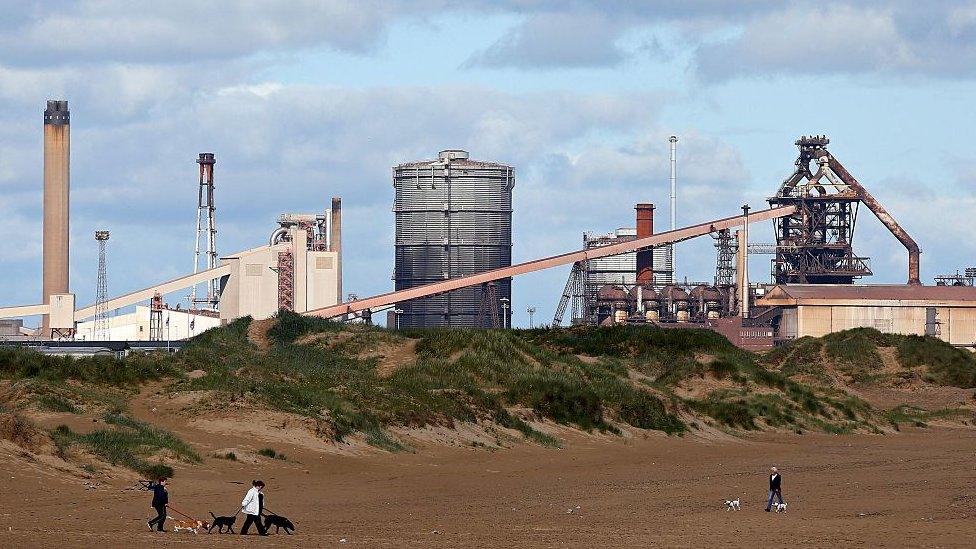
The former Corus steelworks in Redcar, north-east England
Sixteen miles from Trimdon, close to the former steelworks in Redcar, gym owner Mike Hind recounts how the area has fared recently.
"Teesside's been hit massively over the last five to six years with the steel industry, with job losses… and do you know what? The people in Teesside are now standing up and saying together we'll make sure that we're all ok."
In part, he is talking about his operation to feed and support vulnerable local people, of which there are many. Redcar, another "red wall" constituency won by the Tories from Labour in 2019, has seen a marked rise in deprivation since the steel plant shut in 2015 with 2,200 jobs lost.
Alongside the running machines and weights benches of Mike's gym, are bags of food, tins and cereal boxes.
"If I had to go home tonight and sleep knowing that there's still people suffering, and I chose to do nothing about it, I couldn't live with myself."
Gym owner Mike Hind and his team have been delivering care packages to vulnerable people during the pandemic
Mike was so moved by the messages he was seeing from people suffering, he made it his mission to help the most vulnerable. At the height of the UK epidemic, he and his team of fitness trainers and boxing coaches were handing out care packs seven days a week. Some days Mike works 16-hour shifts.
He has witnessed how this crisis is changing.
'People are suffering'
"As time's gone on, more and more young people have come forward. People who now are really suffering because of money, the effects Covid has had on their bank balance."
Mike has never done anything like this before. He's been helped by the local Morrisons supermarket, but he's paid for some of care packs from his own pocket. In just a few months he and his team have delivered nearly 3,000 food and support packs.
"People who've been affected by Covid, they're going to need help for the next 12, 15, 20 months. I think we have to do something with them people."
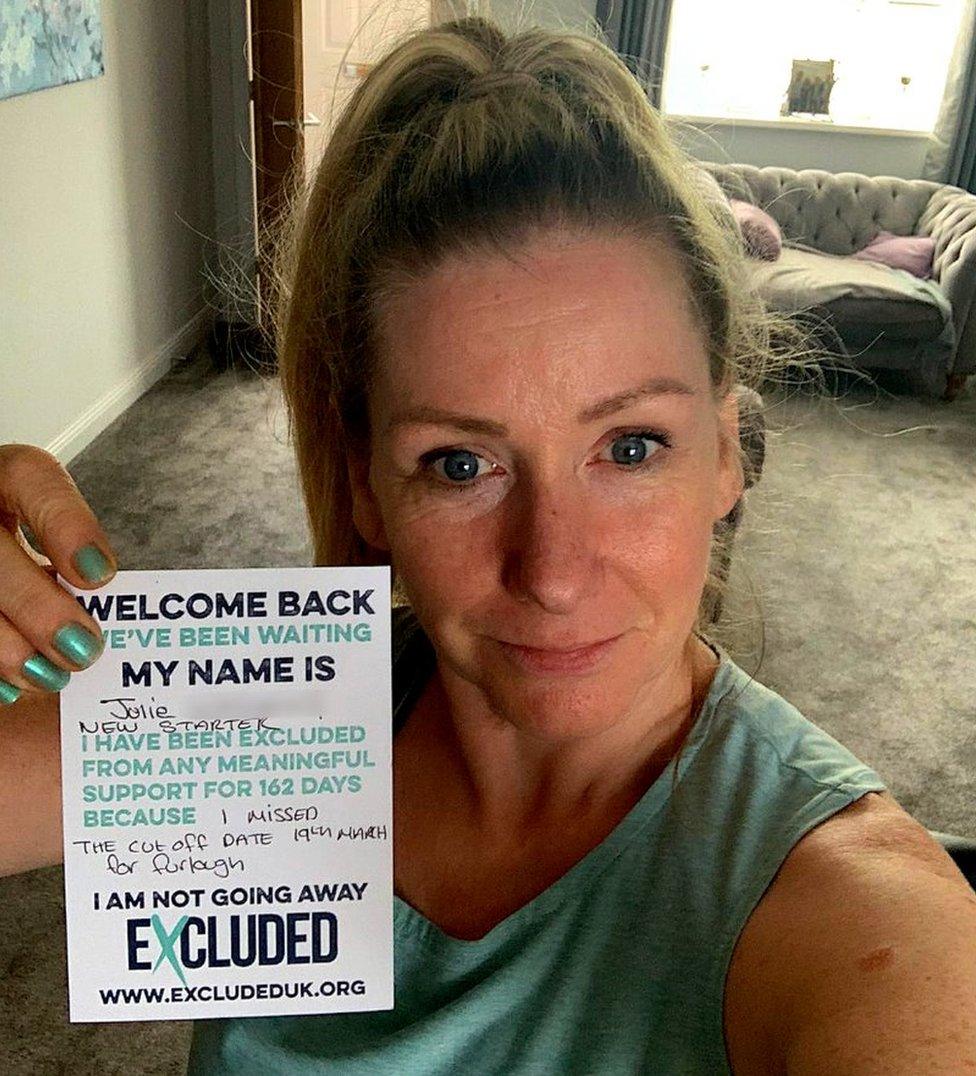
Julie has been campaigning with Excluded UK on behalf of people like her who were left with no financial support during lockdown

Julie is also committed to helping others - campaigning for herself and people like her that have been left with no financial support since lockdown.
She's now inspiring other Excluded UK members to exercise to help with their mental health.
"I feel a lot better, I feel a different person to what I was a few weeks back. Just so much has happened, I've been exercising, I've been going to the gym," she said.
Julie has started her part-time office job, back with the company she was with as lockdown happened. She is now able to reflect on how she got through the hardest time in her life.
"[I'm] really just making the most out of every little bit of help that I've been given by everyone."

WILL COVID-19 CHANGE THE WORLD OF WORK FOR GOOD?: Is working from home a long-term solution?
GROUNDED WITH LOUIS THEROUX: How did these high-profile people cope with lockdown?

- Published30 September 2021
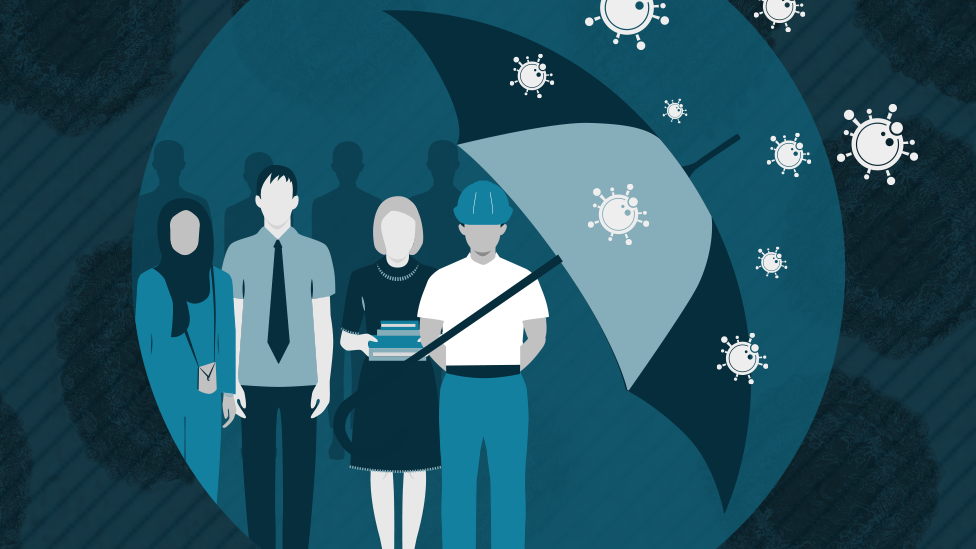
- Published16 November 2021
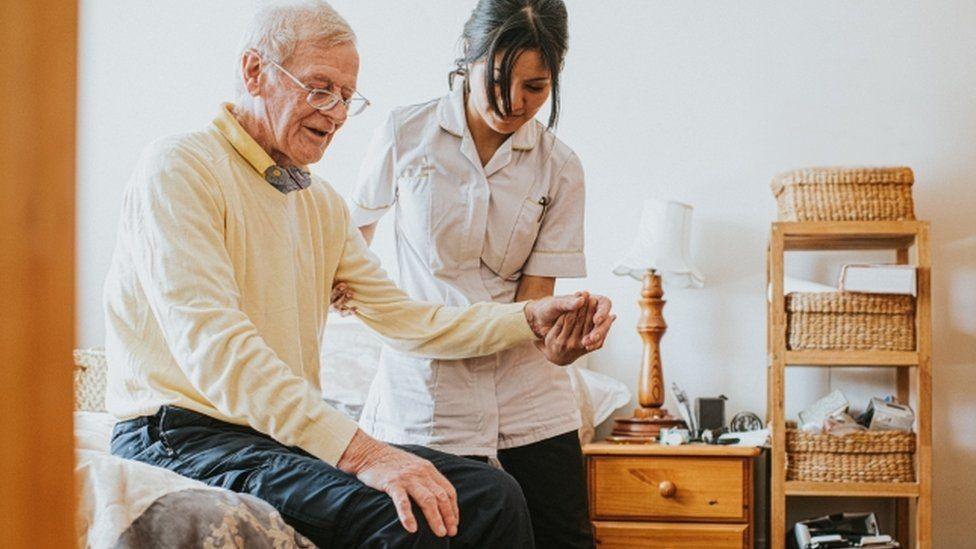
- Published30 September 2021
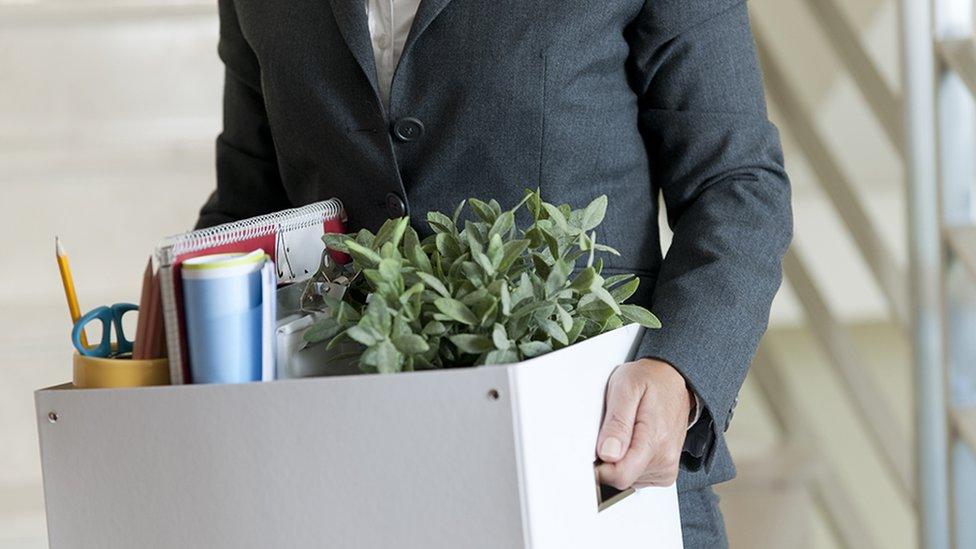
- Published11 August 2020
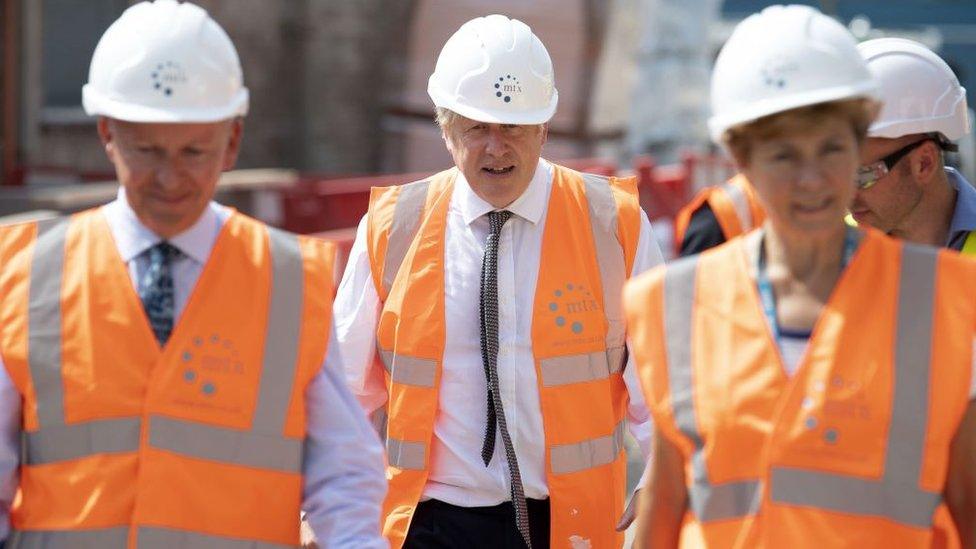
- Published26 August 2020
